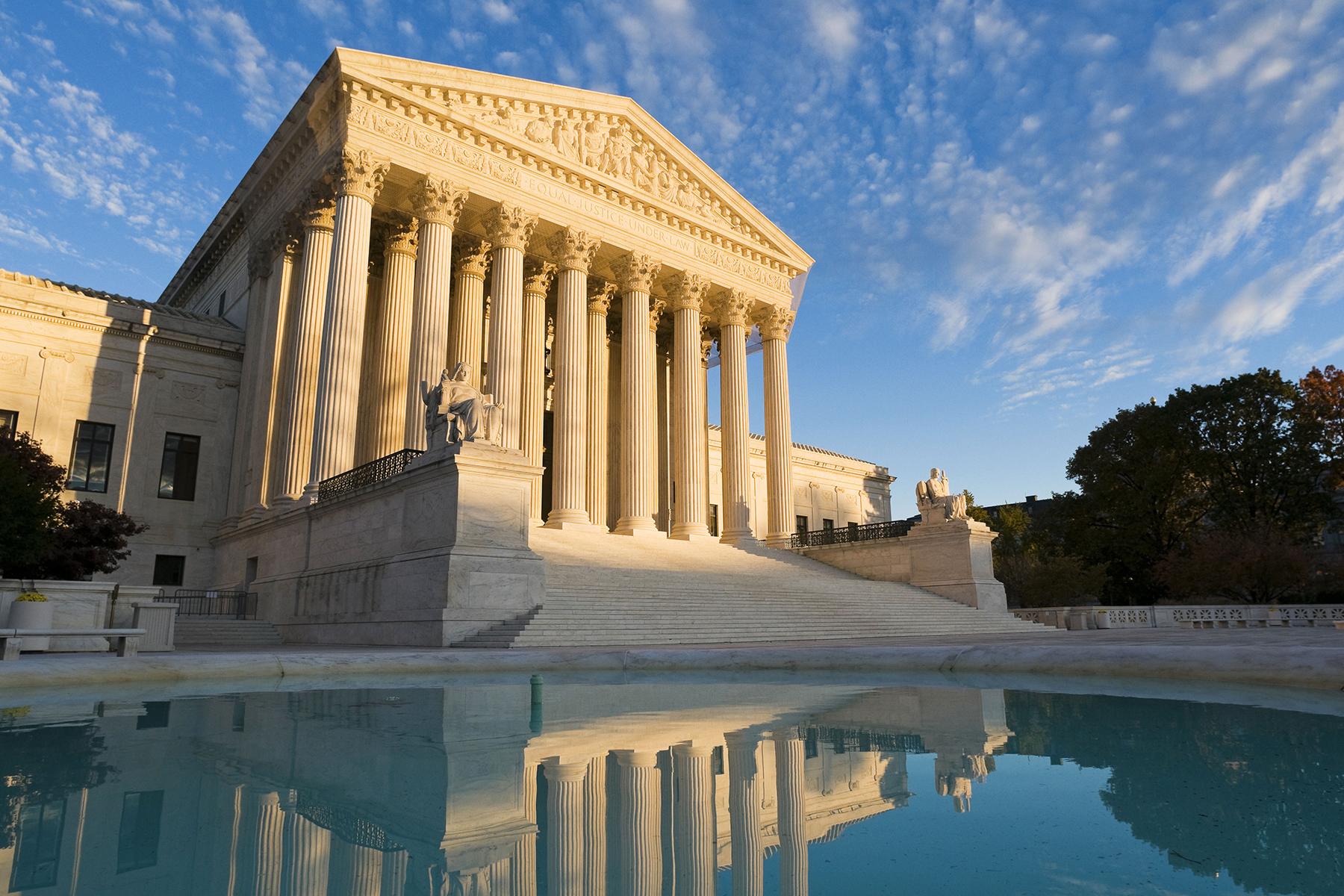The Supreme Court will take up the case in its next session, which begins in October.
A 2010 regulation that requires hotels to disclose information about the availability of accessible rooms for guests with disabilities could be in jeopardy if a case before the Supreme Court results in some portions of the law being struck down.
The suit scheduled to appear before the high court is an appeal to a lawsuit brought by Deborah Laufer against Acheson Hotels. Laufer sued the hotel company, claiming that Maine’s Coast Village Inn and Cottages does not adequately disclose information about accessible rooms on its website. There’s just one catch—Laufer, who is disabled and uses a wheelchair, never intended to stay at the hotel in Maine before filing the lawsuit.
It’s also far from the first lawsuit she’s filed. Laufer is a so-called “tester”—that’s someone who seeks out hotel websites and checks them for compliance with disability accommodations laws such as the Americans with Disabilities Act (ADA). Acheson’s lawyers said in court filings that Laufer’s claims are prolific—she’s filed over 600 lawsuits against small hotels and resorts. Acheson’s legal team further asserts that as a consumer who did not actually intend to visit the properties she sued, she could not demonstrate injury by the hotels’ failure to comply with the law, and thus did not have standing to bring the lawsuits.
Under the law, testers cannot sue for damages—particularly if they have not demonstrated injury by the hotel’s failure to comply. Attorneys, however, can seek reimbursement of legal fees and other costs from the hotels—often to the tune of tens of thousands of dollars—a serious drain on the coffers of the smaller hotels that are typically found out of compliance with the law.
Recommended Fodor’s Video
So, to what end do testers sue small hotels and resorts, claiming violations? Enforcement is the primary aim for the testers. The U.S. Department of Justice (DOJ) is ultimately responsible for prosecuting what it determines are large, expansive violations of the act, such as a 2021 lawsuit against Uber for charging “wait time” fees to passengers who took more time to board Uber rides because of a disability. But the DOJ doesn’t have the resources to litigate against every small hotel that doesn’t disclose adequate information about accessible rooms on their website.
It’s worth noting that the ADA was first passed in 1990, before the majority of hotel rooms were booked online, and companion legislation only recently addressed information requirements for online hotel room bookings.
Proponents of the testers claim that if the Supreme Court rules they don’t have standing to sue, it could chill enforcement efforts by concerned citizens. The testers say that they have standing to sue because they are prospective customers with disabilities seeking information about whether to make a purchase decision—regardless of whether they ultimately make the decision to stay at a property, they encounter discrimination on the basis of their disability if the website doesn’t provide the information they need. Detractors say that the testers shouldn’t have standing to sue unless they actually intend to stay at the property they’ve sued, and actually incur damages or hardship because of the company’s failure to comply.
Laufer has since asked the Supreme Court to dismiss the case after one of her attorneys was disciplined by a federal court in Maryland for inflating legal fees to hotels. Acheson Hotels asked for the court not to dismiss the case so that they might have their day in court, saying “Laufer’s litigation program was recently revealed to have been an unethical extortionate scheme, and the unapologetic purpose of Laufer’s effort to moot this case is to ensure that she or similar plaintiffs can continue pursuing similar schemes.”
Dismissing the case, Acheson’s attorneys say, “would be a disaster for the rule of law.”
The Supreme Court declined to dismiss the case, but would still consider whether the case had been rendered moot at oral arguments on October 4.




